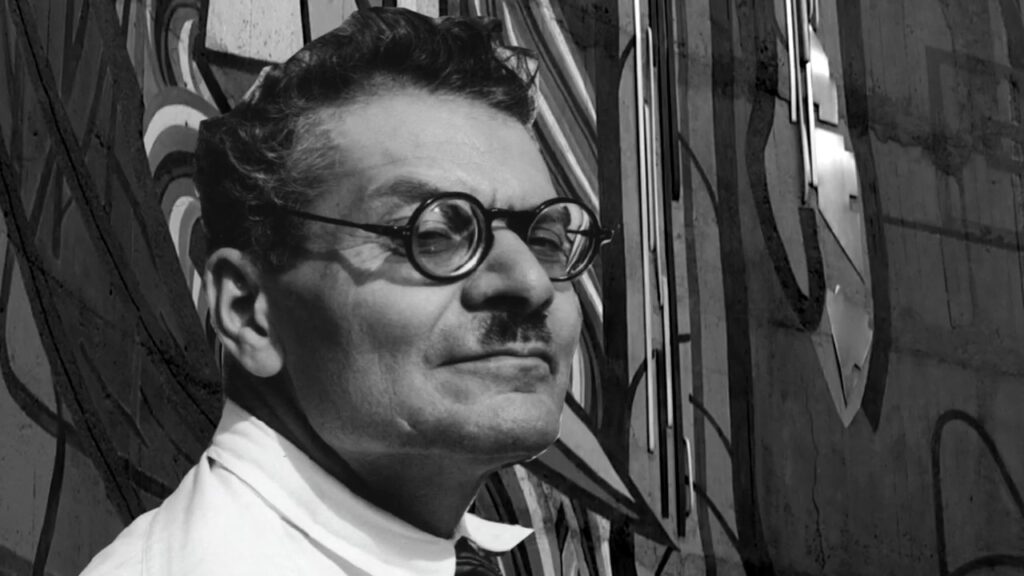Rediscovering Baco: Nostalgic School Supplies in Mexico
For generations, Baco has been a household name in Mexico, ingraining itself in the memories of countless schoolchildren. This iconic brand represents more than just stationery; it’s a vivid symbol of youthful creativity and the scholarly ritual of preparation for a new school year. As time marches on, the nostalgia associated with Baco products grows stronger, creating a longing for simpler times when the choosing of a new pencil case or notebook from Baco was an eagerly anticipated event.
Baco’s range of products provided the perfect blend of functionality and fun—vibrant pencils, whimsical erasers, and sturdy rulers were staples in every Mexican classroom. These items didn’t just serve their practical purposes; they were a canvas for the imagination, often embellished with popular characters from cartoons or intricately designed with bright, inviting patterns. Baco understood that a child’s school supplies could be an extension of their personality, allowing them to subtly express themselves among peers.
The tradition of Baco extends beyond the tangible goods it sold; it is also tied to the development and education of many generations. The mere scent of a freshly opened Baco notebook can transport someone back to their childhood classroom, surrounded by the sounds of pencil scratches and the soft murmur of students at work. It is this multisensory experience that has rooted Baco so deeply in the hearts of those who used its products during their formative years.
Despite the digital age encroaching on traditional educational tools, there’s a resurgence in the appeal for Baco’s classic offerings. Collectors and enthusiasts scour online marketplaces and local bazaars for vintage Baco memorabilia, craving a piece of their past. This resurgence is not only driven by adults seeking a nostalgia fix but also by a new generation curious about the storied brand their parents speak of so fondly. As Mexico continues to forge ahead, Baco remains an endearing emblem of its rich educational heritage.
Baco, the Sweet Reminder of Mexican Childhood Adventures
There’s something undeniably enchanting about the memories of childhood adventures in Mexico, and one confection seems to embody this magic: the Baco. A traditional Mexican hard candy, Baco has been a part of the local culture for generations, offering a sweet taste of nostalgia. This treat, often found at local mercados or tucked away in the pockets of well-prepared abuelas, is more than just a candy – it’s a vehicle back to the carefree days of youth under the warm Mexican sun.
Baco comes in an array of vibrant colors and flavors, each one capable of sparking a different childhood memory. From tangy tamarind to sweet guava, the candy’s flavors are reminiscent of the bountiful fruit trees that many children would climb during leisurely afternoons. The act of unwrapping the candy’s delicate paper packaging is as much a part of the ritual as the act of consumption itself; the crinkle of the paper akin to the rustling of leaves as one scampered up a tree in search of adventure.
For those who grew up in Mexico, every bite of a Baco candy is a sensory trip back in time. The hard exterior slowly giving way to a chewy center mirrors the passage from childhood’s exuberance to the mellowing of age. These candies are not mere treats; they are emblems of a childhood spent outdoors, of games played and laughter shared, and of the simple joys that form the fabric of childhood in Mexico. Even for those far from their Mexican roots, the sweet, tangy zest of a Baco candy can momentarily transport them back to those sunlit days of adventure and freedom.
The Enduring Legacy of Baco in Mexico’s Educational Journey
Mexico’s educational landscape tells a rich story of cultural integration and evolution, one where the legacy of ‘Baco’—presumably a misinterpretation or a symbol of broader historical and cultural influences—plays a subtle yet profound role. While the narrative of education in Mexico is often framed by the influence of prominent historical figures and ancient civilizations, it is also shaped by less tangible forces. These forces, be they mythological or symbolic like ‘Baco’, often leave an indelible imprint on teaching methodologies, curricular content, and even educational infrastructure. This depiction may refer to the integration of mythological archetypes or the Spanish term “Bachiller,” which denotes a high school level education, into the national conscience.
In many rural and indigenous communities across Mexico, the legacy of these influences is manifest in the fusion of traditional teachings with formal academic curricula. Throughout the nation, ‘Baco’—as a metonymic reference to inherited knowledge—resonates within the walls of classrooms where local legends and history mesh with modern pedagogy. Such an amalgamation showcases Mexico’s unique balance between preserving its rich heritage and embracing the advancements of contemporary education. It is this blend that contributes to a distinct educational model, one that inherently values diversity and context over uniformity.
The symbolism associated with ‘Baco’ also extends to modern initiatives aimed at educational reform. Policy makers, educators, and activists evoke such enduring legacies when advocating for curricula that reflect the multifaceted identity of Mexico. By invoking historical legacies and the collective memory they signify, these educational stakeholders strive to create programs that honour traditional knowledge systems, thus capturing the essence of the nation’s educational evolution. Such efforts are not merely matters of policy, but they are spirited endeavors that seek to uphold the dignity of Mexico’s cultural and educational past.
Even as Mexico continues to navigate the challenges of modernization and globalization in its educational journey, the influence of ‘Baco’—whether as an embodiment of classical knowledge or as a representation of the educational milestones attained—remains palpable. Students across the nation encounter the enduring ideas and teachings rooted in historical legacies such as these, blending the time-honoured wisdom of the past with the innovative prospects of the future. The dialogues between old and new, global and local, continue to shape Mexico’s educational journey, ensuring that the legacy of ‘Baco’ endures in the collective academic spirit of the country.
From Pencil Cases to Backpacks: Baco’s Treasured School Essentials
Imagine a place where the vibrant culture of Mexico meets the bustling energy of a schoolyard. Baco’s collection of treasured school essentials perfectly captures this blend by offering an array of colorful pencil cases and sturdy backpacks that tell a story with every thread. Their items aren’t just tools for carrying books and pens; they are emblazoned with traditional Mexican patterns and symbols, turning everyday school supplies into an adventure for each child who carries them.
These backpacks are not merely a fabric shell for educational necessities; they are crafted with the spirit of Mexico’s rich heritage. Intricate designs modeled after Aztec and Mayan art, embroidery that tells the tale of Mexican folklore, and vibrant colors that rival the country’s famously picturesque sunsets—each detail on Baco’s bags provides a glimpse into the heart of the land’s history. Beyond aesthetics, durability remains a core focus, ensuring these backpacks withstand the rigors of daily school life.
However, what is an adventure without a trusty sidekick? Baco’s pencil cases are just that! Designed to complement their backpack counterparts, these cases are a blend of functionality and cultural celebration. They are compact enough to fit in a desk but spacious enough to hold a vivid selection of markers, pens, and other school essentials. Besides, the reinforced seams and washable materials make maintenance a breeze for both parents and children.
Baco does not only pay attention to appearance and quality; they also sew sustainability into their products. With an increasing awareness of environmental issues, Baco commits to using recycled materials where possible, ensuring that the adventure of today does not compromise the Mexico of tomorrow. Their approach to eco-friendly production speaks volumes, allowing young learners to carry a piece of Mexico’s future along with their heritage.
In the end, Baco’s school essentials go beyond the functionality of carrying supplies from home to classroom. They are an ongoing celebration of Mexican culture within the daily routine of education. Each day, as students zip open their pencil cases or swing their backpacks over their shoulders, they are reminded of the enduring legacy and spirited adventure that their country encapsulates—a truly priceless addition to any student’s school day.
Baco’s Role in Shaping Our School Memories in Mexico
Baco, the Roman God of wine and festivity, might seem like an unusual figure to associate with school memories in Mexico. However, his influence is metaphorically apparent through the spirited and celebrated traditions that Mexican schools often embody. These traditions, which foster a strong sense of community and camaraderie among students, share a resemblance to the convivial spirit that Baco represents.
In many Mexican schools, events and festivals play a crucial role in the educational experience, shaping memories that last a lifetime. From the vibrant celebrations of Dia de Muertos, where students honor those who have passed, to the energetic dances and parades during the Mexican Revolution anniversary, these festivities instill a sense of joy and unity that parallels the revelry of Baco’s domain.
The emblematic school kermés—local fairs with games, food, and dance—is another instance where Baco’s influence subtly permeates. These events not only provide a break from the academic routine but also contribute to creating a lively atmosphere that strengthens social bonds and creates cherished memories among the youth. Here, the echoes of Baco’s festivities are felt in the laughter, the shared experiences, and the collective enjoyment of the school community.
Moreover, the ‘convivios,’ or social gatherings, that occur after important academic milestones such as graduation ceremonies or the completion of significant projects represent another aspect of this cultural tradition. These gatherings, which often include toasts and celebratory meals, mirror the essence of Baco’s spirit by highlighting the joy of achievement and the importance of celebrating successes together.
While direct references to Baco may not be evident in the day-to-day activities of Mexican schools, the God’s embodiment of celebration and community underpins the very fabric of school life. The social and festive events that define many school experiences in Mexico contribute to a collective memory that students carry with them long after their schooling years, a testament to the lasting imprint of Baco’s role in shaping these vibrant and unforgettable moments.



